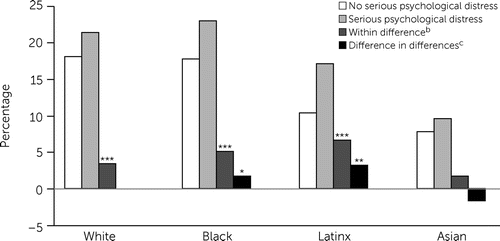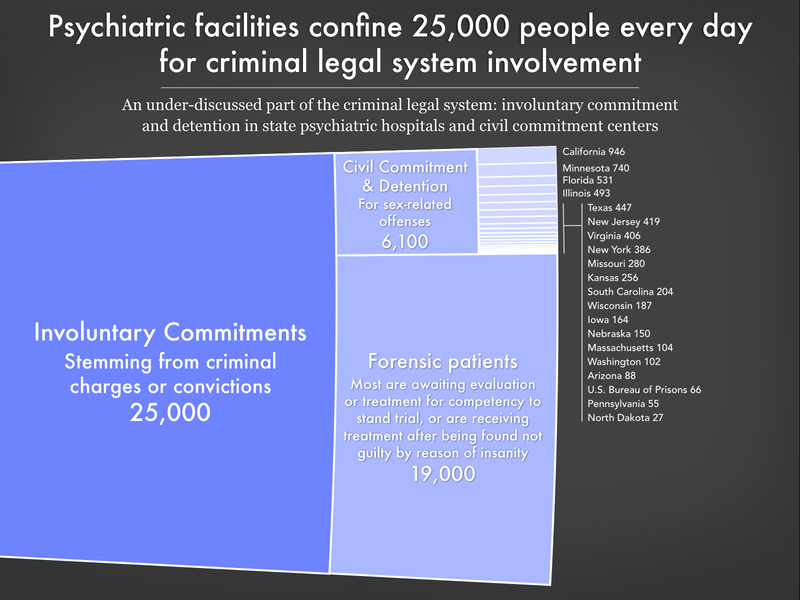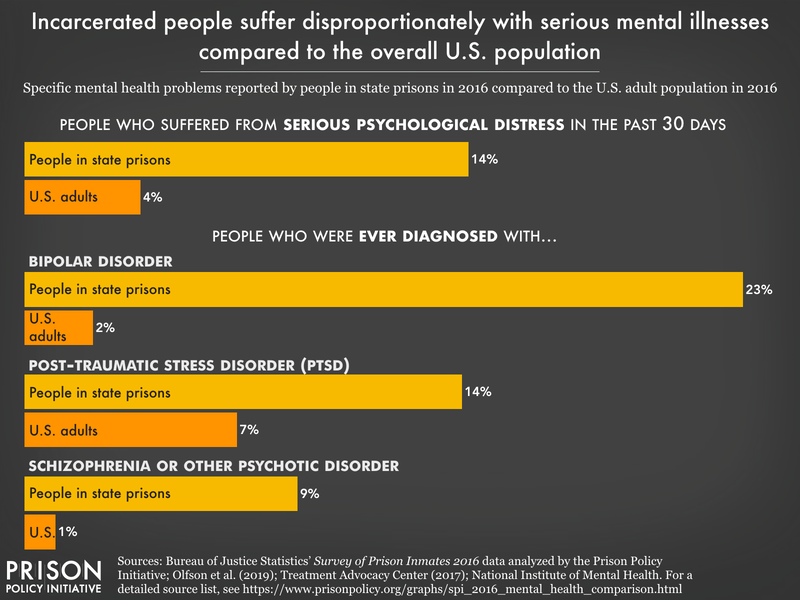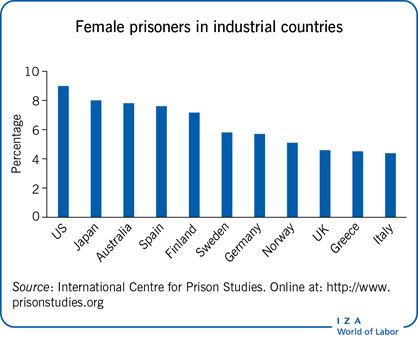Criminal Legal Involvement Among U.S. Adults With Serious Psychological Distress and Differences by Race-Ethnicity

Objective: The authors examined associations between criminal legal involvement (CLI) and serious psychological distress and how these associations differed by racial-ethnic group. Methods: The authors conducted a retrospective analysis of multiple cross-sections of data from the National Survey on Drug Use and Health (2015–2019) and used multivariable linear probability regression models to assess lifetime CLI and past-year probation, parole, supervised release, or other conditional release in a nationally representative sample of noninstitutionalized U.S. adults, ages ≥18 years (N=214,505), with and without serious psychological distress. Results: Adults with serious psychological distress had higher rates of CLI than adults without such distress (difference of 4.1 percentage points, 95% CI=3.3–4.8, p<0.001). The rate of CLI increased as distress severity increased, from mild (3.2 percentage-point difference, 95% CI=2.6–3.8, p<0.001) to high (7.2 percentage-point difference, 95% CI=6.4–8.0, p<0.001). The risk for CLI among those with serious psychological distress was even greater for Black and Latinx adults than for White adults (1.8 percentage-point difference, 95% CI=0.1–3.5, p<0.05, and 3.2 percentage-point difference, 95% CI=1.3–5.2, p<0.01, respectively). Conclusions: Rates of CLI were higher for adults with serious psychological distress. Efforts are needed to equitably triage individuals with acute mental health needs to timely psychiatric care instead of carceral settings. Collaborative models of care that commingle resources from mental health and law enforcement organizations are needed to prevent unnecessary incarceration of individuals experiencing mental health crises and to increase access to community-based treatment.

Criminal Legal Involvement Among U.S. Adults With Serious Psychological Distress and Differences by Race-Ethnicity

Policing in America: Understanding Public Attitudes toward the Police. Results from a National Survey

Policing in America: Understanding Public Attitudes toward the Police. Results from a National Survey

PDF) Outcomes Among Drug Court Participants: Does Drug of Choice Matter?

Federal criminal sentencing: race-based disparate impact and differential treatment in judicial districts

Mass Incarceration: The Whole Pie 2024

Stress in America 2022: Concerned for the future, beset by inflation

Chronic Punishment: The unmet health needs of people in state prisons

IZA World of Labor - Women in crime

Reducing the Economic Burden of Unmet Mental Health Needs, CEA

Vicki FUNG, Professor (Assistant), PhD, Massachusetts General Hospital, MA, MGH, Mongan Institute for Health Policy

Differential Incarceration by Race-Ethnicity and Mental Health Service Status in the Los Angeles County Jail System

Mental Health By the Numbers NAMI: National Alliance on Mental Illness